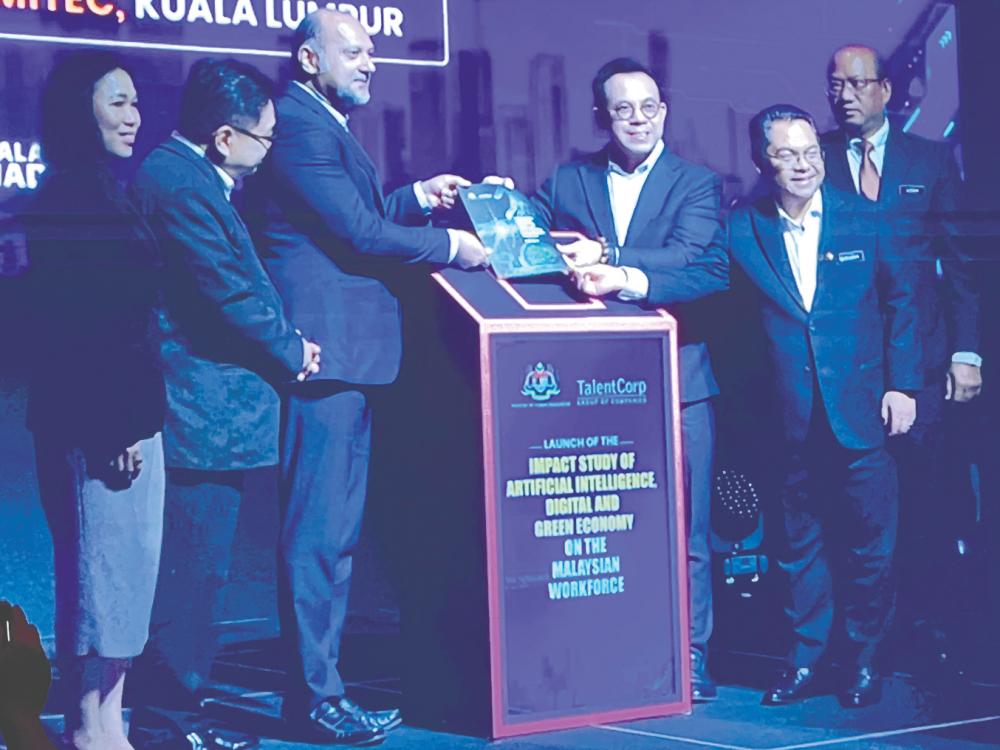KUALA LUMPUR: Artificial intelligence (AI), digitalisation and the green economy will fundamentally reshape the job market, introduce 60 new roles and upskill 1.8 million domestic workers in 10 key sectors by 2025, Human Resources Minister Steven Sim Chee Keong said.
The Human Resources Ministry has identified more than 600,000 jobs that need skill enhancements, while new roles will emerge to meet the growing demands of these sectors, he said at the launch of Talent Corporation Malaysia’s (TalentCorp) report entitled “Impact of AI, Digital and the Green Economy on the Malaysian Workforce” at Malaysia International Trade and Exhibition Centre today.
The report highlighted 10 key sectors in the first phase of the upskilling initiative – aerospace, chemicals, electrical and electronics, energy and power, food manufacturing and services, global business services, information and communications technology, medical devices, pharmaceutical manufacturing, and wholesale and retail trade. These sectors contributed about 60% of Malaysia’s gross domestic product in 2023, amounting to RM933 billion, and employed 31% of the country’s skilled and semi-skilled workforce.
“We chose these sectors because they form the backbone of our economy. Understanding their future trajectory is critical for shaping our policies,“ Sim told reporters at the launch.
He said emerging roles such as AI engineers, sustainability specialists and bioprocess engineers are expected to become increasingly significant, driven by advancements in AI and sustainability initiatives. “The report is not just about the future. It is a roadmap for ensuring our workforce is prepared to meet these challenges.”
In response to the anticipated demand for upskilling, Sim said, the government has allocated RM3 billion in funding for training programmes. “This will be channelled through agencies like TalentCorp, HRD Corp, and Perkeso. By 2025, we aim to empower workers through targeted skills training that aligns with the future needs of our economy.”
Sim noted that one key initiative is the launch of the MyMahir portal, a living document that provides real-time updates on employment trends and training opportunities. “MyMahir is not just a platform, it is a game changer. It will enable small and medium enterprises, job seekers and policymakers to align their strategies with evolving market demands.”
The report underscores the importance of adapting to technological and environmental changes, he said. “Approximately 1.8 million workers will require targeted skill enhancements to remain competitive. We are not just addressing today’s jobs but preparing for tomorrow’s jobs.”
Sim said phase two of the initiative would expand the study to include 12 additional sectors, providing a deeper understanding of Malaysia’s labour market. “Phase two will be released next year, and our goal is to ensure no sector is left behind. Collaboration across ministries and industries is key to achieving this.”
The initiative aligns with Malaysia’s broader economic goals, including transitioning to a high-income nation and fostering inclusive growth, he said. “Upskilling and reskilling are not just policy objectives; they are essential for securing a sustainable and resilient future.”









